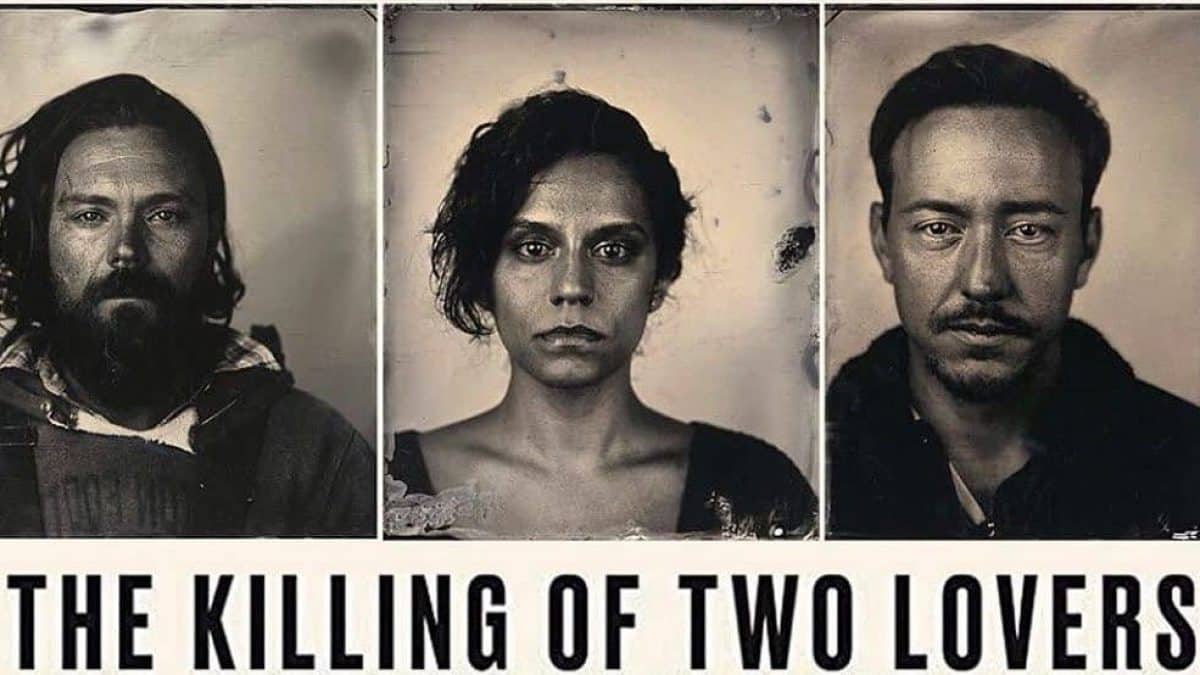Review, “THE KILLING OF TWO LOVERS”
Actor Clayne Crawford impressed me with his performance in the excellent and underrated 2012 thriller, “The Baytown Outlaws.” In a film full of over-the-top violence and macho posturing, Crawford found a realistic tone to his performance which kept the film centered.
His film choices have been uninteresting and haven’t challenged him as an actor since this.
Crawford is back on my radar with a fantastic turn in the new film, “The Killing of Two Lovers.” I saw the film at Sundance but gave it another look in preparation for its recent release.
Writer and director Robert Machoian’s dark character piece gives the actor (who also executive-produced) the kind of role where he can dig deep.
Crawford plays David, a man who is separated from his wife and kids and is not dealing with it well.
As the film opens, his estranged wife Nikki (American-Iranian actress Sepideh Moafi) has taken a new lover. David and his wife agreed they could see other people while they were trying to work things out, but he assumed it was just something said when couples find themselves separating, never thinking either of them would act on it. David has not found another woman and it is a blow to his soul that Nikki’s taken a lover so soon after their separation.
The opening shot of the film more than hints at the dark thoughts David is having and how badly he is handling this heartbreaking turn of events. Carefully designed to grab the audience, these opening moments make the film instantly effective. Machoian begins by inducing a gasp from his audience, a clever move that assures we take notice.
Chris Coy is Derek, Nikki’s new lover and he has begun to sleep over in Nikki’s home where David’s children sleep. A bigger blow to a man’s fragile manhood one cannot imagine.
David has moved back into the house where he grew up to help with his sickly father (Bruce Graham). Here he is again, living somewhat the same homelife of his youth. Another ding to his manhood.
As David points out, he feels “no time has passed” since he and Nikki were married right out of high school. He was a big man then. Proud and strong and with his future in front of him.
This is a restrained film. So much emotion is held back within each character that we almost scream for them to explode at one another. Arguments come but never as we expect, and scenes surprise us when they sidestep expectations. Machoian is observant regarding his characters, his narrative quiet and open and sparse.
Oscar Ignacio Jiménez does not go for Terence Malick-inspired “God’s beauty” with his cinematography. David and Nikki feel trapped. To these characters, the vastness of the Utah land is far from a path of splendor under the endless sky. Jimenez shoots the film in the 4:3 ratio to bring home the confinement felt by the couple. The country may be big but the opportunities for David and Nikki are few (if there are any left, at all) and the two have boxed themselves in.
Nikki never seems happy with either man. She knows they have no future.
Derek uses the term “girlfriend” in front of Nikki and David which comes as a shock to both. This scene (the first with a confrontation between all three) is a scene full of natural power that unspools in ways we cannot predict. All three actors are stunning here.
As the film progresses its title’s ambiguity becomes apparent. While there is certainly a sense of danger and an undercurrent of violence, this is a film about characters sifting through the emotional mess they have made for themselves.
David and Nikki have a broken marriage and a bleak future. Together they are far from perfect but, apart, their lives seem to have less meaning. By film’s end, we are hoping they can find the middle ground needed to make it work the best they can. Machoian’s screenplay hits the right emotional beats and uses plot sparsely, preferring to let the emotions play out in the actions—and sometimes inactions—of its characters.
Moving at times and always interesting, “The Killing of Two Lovers” is a potent human drama that, like its characters, does not search for answers on how to fix what is broken. It moves through its characters’ problems looking for a somewhat elusive middle ground. If David and Nikki can navigate the darkness in their lives, perhaps they can find meaning and show their children the way to a better life. Maybe their Utah sky will find a bit of sunshine that can break through the dark clouds.
news via inbox
Nulla turp dis cursus. Integer liberos euismod pretium faucibua



